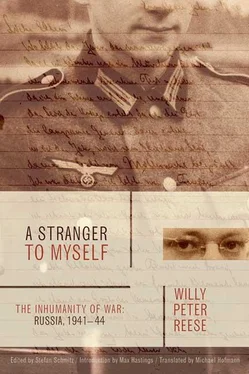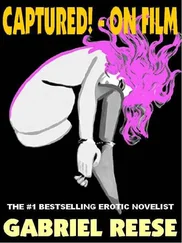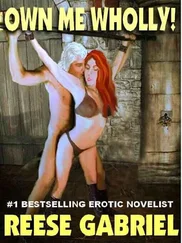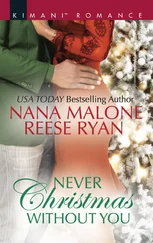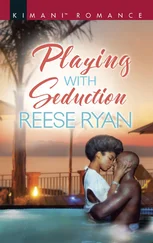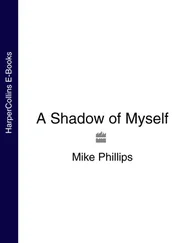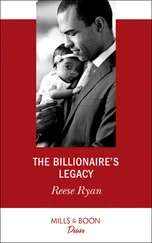Willy Reese - A Stranger to Myself
Здесь есть возможность читать онлайн «Willy Reese - A Stranger to Myself» весь текст электронной книги совершенно бесплатно (целиком полную версию без сокращений). В некоторых случаях можно слушать аудио, скачать через торрент в формате fb2 и присутствует краткое содержание. Город: New York, Год выпуска: 2011, ISBN: 2011, Издательство: Farrar, Straus and Giroux, Жанр: Биографии и Мемуары, military_history, на английском языке. Описание произведения, (предисловие) а так же отзывы посетителей доступны на портале библиотеки ЛибКат.
- Название:A Stranger to Myself
- Автор:
- Издательство:Farrar, Straus and Giroux
- Жанр:
- Год:2011
- Город:New York
- ISBN:978-1-42999-875-8
- Рейтинг книги:4 / 5. Голосов: 1
-
Избранное:Добавить в избранное
- Отзывы:
-
Ваша оценка:
- 80
- 1
- 2
- 3
- 4
- 5
A Stranger to Myself: краткое содержание, описание и аннотация
Предлагаем к чтению аннотацию, описание, краткое содержание или предисловие (зависит от того, что написал сам автор книги «A Stranger to Myself»). Если вы не нашли необходимую информацию о книге — напишите в комментариях, мы постараемся отыскать её.
is an unforgettable account of men at war.
A Stranger to Myself — читать онлайн бесплатно полную книгу (весь текст) целиком
Ниже представлен текст книги, разбитый по страницам. Система сохранения места последней прочитанной страницы, позволяет с удобством читать онлайн бесплатно книгу «A Stranger to Myself», без необходимости каждый раз заново искать на чём Вы остановились. Поставьте закладку, и сможете в любой момент перейти на страницу, на которой закончили чтение.
Интервал:
Закладка:
Also, the simplest facts of human life—sleep, a piece of bread, a sup of well water, a kindly word—all these, after long disregard, became precious to me once more, and anything beyond the minimum I took as an unmerited kindness.
But that night I was taken by a violent yearning for my past. My sheltered youth pursued me with gorgeous scenes. There were many things I had not done, and the future sat in front of me like a raw block of marble. I could suddenly hear Moorish dances; I saw the stage, the dancers, I heard the Gypsy song and the keening voices of the girls, the magic and drunkenness of Dionysiac music, and I wept for my homeland and my personal fate. I left nothing out, and as I drank the bitter cup, I saw the purpose and the significance of time. Scenes, music, and stars wandered into my dreams…
On the Hohes Venn, the heathland was ablaze. The fire chewed the turf under the tindery ground and threatened woods and fields, as it kept flickering up in new places. Foresters and soldiers were set to fight and quell it, and in the evening we were sent out to serve as firemen.
Smoke obscured the slope. The smell of burning flowed down into the valley; dust and ashes came down on our faces and shoulders. As the evening cooled, we climbed up. Dusk fell early. Smoldering fires played like will-o’-the-wisps on the forest edge. On a height, little flames flickered up like rows of lanterns, lit by dwarfs and heath spirits in the wind.
We ate our bread, looked out a camping site for ourselves on the soft needles between the pines, put up a screen of branches to protect us from the wind, and rolled ourselves into our thin blankets. One man kept watch. Very slowly the humus gave back the warmth of the bygone day.
I lay there a long time with eyes open. Stars glimmered in the branches, spun incredibly slowly over the trees. Wind whispered in the boughs, dew fell, and the earth exhaled mist and moisture. So I found my home in the cosmos. I had grass and needles for a bed, the sky for a ceiling. No walls separated me from God and the weft of life. I lay as sheltered as in the heart of the world.
Some Walloon foresters came and sat by me. They talked about their work, their wives, about the work and the happiness of a conquered people that never understood the war and was happy simply to endure, now that it was over. At midnight they took their leave of me, as of an old friend, and left to protect their huts from the creeping subterranean fire. I was glad. I never saw other peoples as enemies; there was always a bridge from man to man in quick time. They sensed the peaceable man under my uniform. The only enemies I ever found were around me, and within me, in the self that was fighting against my destiny and imperiling me. So I thought, and fell asleep.
I woke shivering at dawn. The fire had gone out overnight. Fog and smoke mixed to a thick haze. We went back down to camp…
We traveled to Monschau, and I breathed in the air of my old city. Life wasn’t so bad; it was just me making it unbearable for myself. As if, in my obstinate hatred for war and military, I insisted on suffering from them.
At noon we marched past the lake at Robertsville, over hills and narrow forest paths, into the valley. A stream flowed under beeches and alders, trout flashed over the stones, algae shimmied in the current, and feldspar and quartz glistered on the bottom. We climbed steep slopes to a ruin, and there in the ruined castle we set up camp among wild fruit trees and blossoming shrubbery.
As evening fell, we scaled the wide tower, lit a campfire, and sat on the crumbling masonry, amid ivy, brushwood, thorns, and wild vines. We emptied a small barrel of beer, smoked, and sang songs of soldiers’ lives, love, going to war, and death, full of the melancholy-beautiful bliss of death that I once felt when listening to Haydn’s Military Symphony. Flames flickered, stars danced, shadows covered us, the scent of wood, juniper, and mountain ash climbed up to us, the night wind burst on rock and bush, and the moon sailed through the dreamy night. The call of a screech owl resounded in our silence. We sat together as though resting from a long journey. In that hour I felt at ease in my company, one of many who shared the same destiny, the same garb. Though not necessarily of one mind, we were just adventurers abroad.
So I was a soldier for a few hours at least, even in my heart, and felt an early intimation of gratitude to life and fate, which taught me that many things could happen only in war and in the mask of a soldier. I felt the soldierly spirit that identifies beauty in the midst of sweat and pain and welcomes the hour of relief at the end of obedience and punishment. Secretly, though, what I loved was the feeling of returning to my self, which opened its gates. What I was responding to were romance, youth, and a whiff of a different freedom—never weapons, never war. My yearning always remained awake, and my homesickness unrolled its carpets over all things and experiences. I was still only at the beginning, and what was ahead lay in front of me as in a locked chest. Untrodden, the wide, wide world stretched in front of me.
I was still living in my own kingdom, thinking of the cosmos, the search for God, wild imaginings, dream and grotesquerie, which, even in self-division, spiritual anxiety, despair, and questioning, I preferred to the soldierly world of masks.
Night rain whooshed down on our tents, drumming on canvas and leaves. The following evening we marched back to Elsenborn…
The war games went on. We practiced with flags, blanks, and dummies, and our victory was never in doubt. We tossed our enemy aside. And the Wehrmacht reports carried nothing but victorious encirclements, advances, and extraordinary numbers of captives and booty from the Russian campaign, where our destiny was pushing us. [6] Germany attacked the Soviet Union on June 22, 1941—in other words, during Reese’s military training in Cologne and the Eifel. In the first few months of the campaign, the Wehrmacht achieved great successes that made a speedy victory, as previously against France, appear possible.
We served the imperative of history as specks of dust in the whirlwind and were privileged to participate in the end of our world.
So the introduction to my adventures ended with intimations, dreams, and signals whose interpretation I left to some future date and later forgot.
We returned to barracks in Cologne lean and strong and sunburned. Our posting might arrive any day. I took what the city could offer me: amours, books, concerts, plays, variété, and thoughtful hours in the cathedral. I went home, saw my friend once more, and drank the night away with my comrades. Uncertainty and expectation were features of my days. I didn’t worry and felt strangely impatient for what was to come.
One day I found my name on the list. I was kitted out and equipped, said my goodbyes at home, and set off on my great Russian adventure.
And so the war began for me as well.
Polish Intermezzo
At dawn we marched to the station, with pack, steel helmet, and rifle. It was raining, the weight pressed on our shoulders, and within us we felt the sadness of departure. The women on the streets had tears in their eyes; the girls smiled at us. [7] Reese boards his train east in Cologne at the end of August. On the eve of his departure, he notes he is glad the period of uncertainty is now over. In his first days in Poland he hopes not to have to fight, since the war against the USSR will presumably be over before he can get to the front.
We were put on trains, and the great adventure began.
The train rumbled through the late summer, into the rising sun. It felt humid in our goods wagon. We sat on hard, shaking benches. On the floor was a thin covering of well-trodden straw. Our baggage was stacked in the corners; our blankets were full of dust and chaff. Rifles and belts struck the walls in the tempo of the rattling wagon, and the wheels sang the never-ending song of the rails. A hubbub of voices, song, card games, sleep, and laughter surrounded me, and I was afraid to reflect. And so I read, without knowing what I was reading or understanding it.
Читать дальшеИнтервал:
Закладка:
Похожие книги на «A Stranger to Myself»
Представляем Вашему вниманию похожие книги на «A Stranger to Myself» списком для выбора. Мы отобрали схожую по названию и смыслу литературу в надежде предоставить читателям больше вариантов отыскать новые, интересные, ещё непрочитанные произведения.
Обсуждение, отзывы о книге «A Stranger to Myself» и просто собственные мнения читателей. Оставьте ваши комментарии, напишите, что Вы думаете о произведении, его смысле или главных героях. Укажите что конкретно понравилось, а что нет, и почему Вы так считаете.
